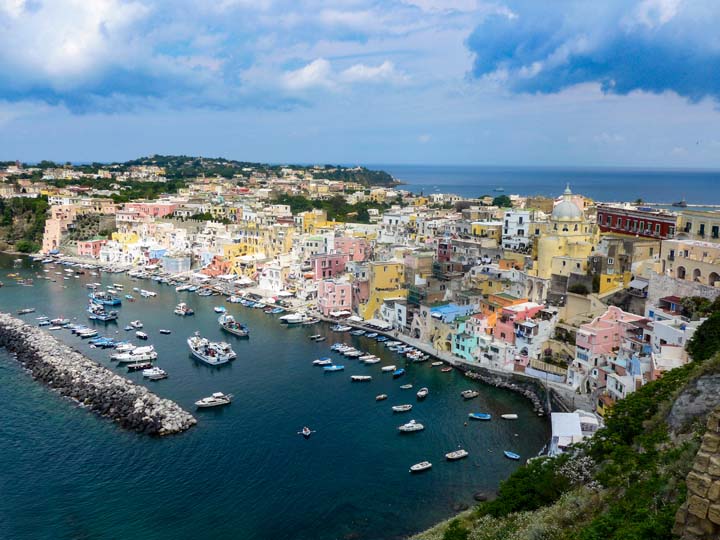

The Mediterranean diet is widely publicized as best on the planet and broadly recommended at one time or another by just about everyone in the healthcare field and beyond.
As a nutritionist whose family of origin is from the Mediterranean and who visits regularly, I would like to offer perhaps a broader perspective, or at least some additional things to consider that aren’t mentioned in the scientific research about the efficacy of the diet.
I think we all know what the Mediterranean diet is about but as a review, food choices are mainly fresh fruits and vegetables (most of the time from the family garden or a local market) whole grains, nuts, legumes, beans and greens. The diet includes very little meat, some seafood, cheese and olive oil. This is the diet that Ancel Keys observed, studied and wrote about in the 1950’s and 60’s.
His stunning research opened the eyes of the world to a diet promoting health and longevity without much of the chronic illnesses that the rest of the world was experiencing. His research is compelling, but I suggest that we consider just some of the other components of life in many parts of the Mediterranean that make the diet work.
People in the Mediterranean get natural movement each day in their life – lots of it!
The region they live in is mountainous. Homes are terraced along the sides of the mountains and if you want to get anywhere you must walk. I’ve never come across an escalator in the towns and villages that I visit. Elevators are scarce and people of all ages walk up to second, third and fourth floor apartments each day of their lives. I’ve honestly never seen a health club either. Natural stair masters are everywhere in the daily routine of life. What I do see are people walking to and from the markets and families out walking each night after a light dinner, even after a day of natural movement that would put most of our population to sleep pretty early each night.
Street Food is still relatively healthful and easy to find!
Fast Food in the south of Italy in small towns is seasonal, local and very good for you. From spring through summer you will find fresh oranges, lemons and pomelo (a popular citrus fruit) that are squeezed with a manual press, nothing else added, and are the best tasting juice you’ve ever had.
Almost all year you’ll find small stores and street vendors selling lupini beans in large tubs. You can purchase any amount you choose – the nutritional content includes 40% protein, 40% fiber and antioxidants. Seeds of these beans have dated back as far as 22 century BC.
Fall is one of my favorite times where fresh chestnuts in season are roasted on corners and pomegranates are available to eat as a snack or as fresh squeezed juice. I couldn’t get enough of either of these while visiting Rome last Christmas. Combined with walking and food from local markets everywhere I was in heaven and wishing we could have more of it all in the U.S. and around the world.
Back yard and front yard gardens are everywhere!
Southern Italians are master gardeners because gardening is passed down from generation to generation. The area around their homes is valued as fruit and vegetable garden space. There is no need for landscapers or owning a lawnmower because the garden is all around the home. Seasonal, local and organic food is growing outside and dinners are planned around what is in season and ready to pick. Aside from the nutritional value of the food, everyone gets additional exercise, fresh air and enjoyment from being in the garden. I watched my grandfather grow amazing food and feed a family of 11 (nine children plus two parents) with produce that would rival the most upscale markets today, with eating very little animal products and drinking some very good homemade red wine.
People in the Mediterranean have social networks and a strong sense of community
One of the most wonderful experiences when visiting family is Sunday dinner at the home of my mother’s cousins. It’s a time for everyone to be together, to share experiences from the week, for the children to play together and for adults to support each other when needed. I’ve taken groups from the U.S. to my family’s home for the “Sunday Experience” and I’m told by many that it’s a highlight of the trip. Social connectedness is a verified component of health and unfortunately many factors in our lifestyle no longer allows for time or accessibility of this experience.
“We could add to the above the type of olive oil consumed in very small amounts, the type of greens that are consumed in copious amounts and many other factors of the culture and lifestyle in parts of the Mediterranean that make the diet work. But for now, maybe, just maybe, the diet alone is healthful but not the only thing promoting longevity in the Mediterranean.
For just $5.oo,, you can own a guide to starting your child on the healthiest path possible. This guide includes Infant and toddler recipes based on the world-famous Mediterranean Diet. It includes over 30 recipes and all the information you need to help your child live the healthiest life.